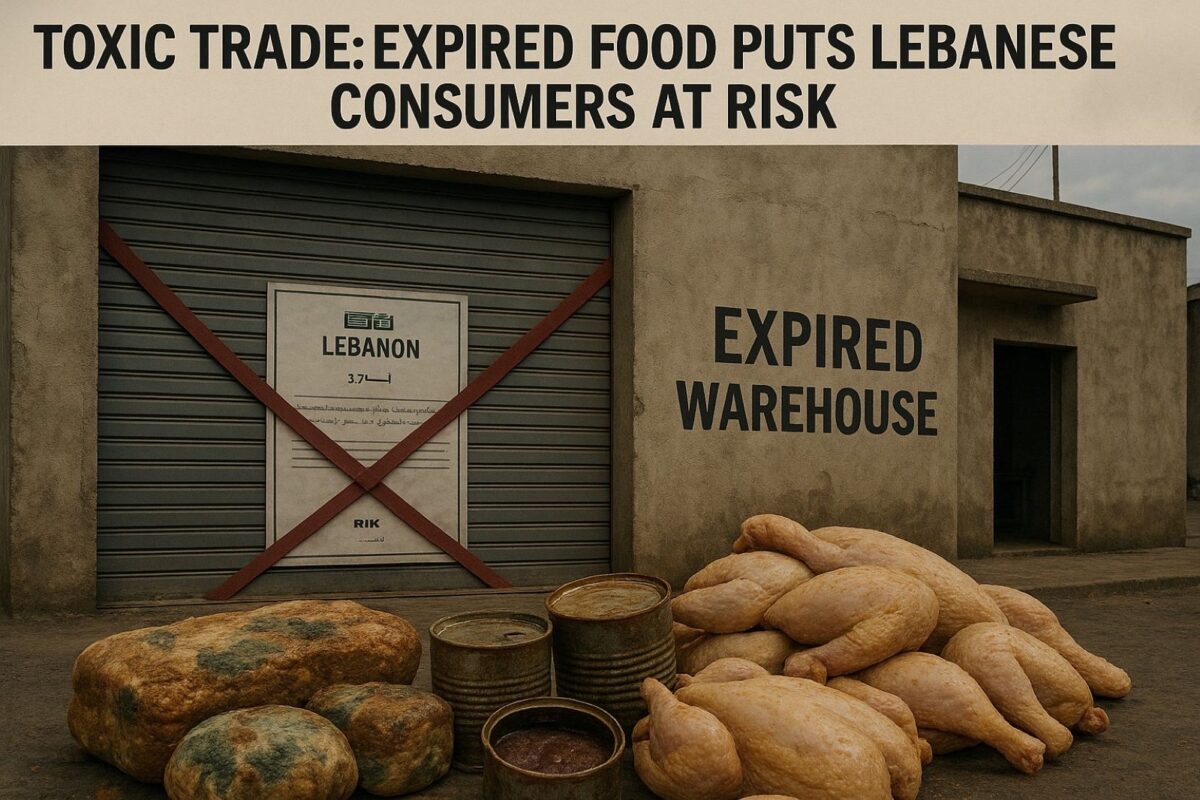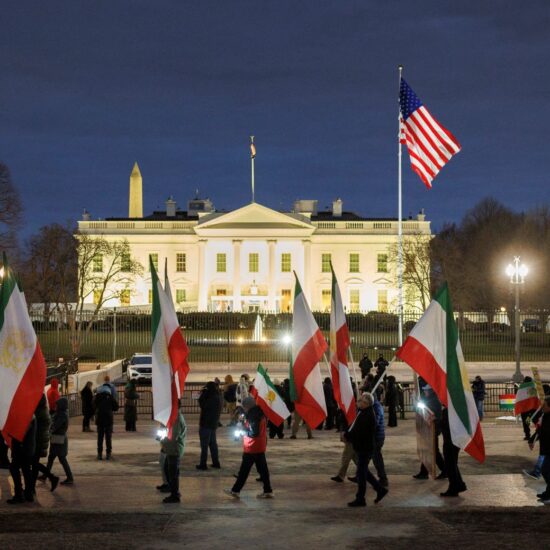
Lebanon’s food sector has become a reflection of the country’s deep-rooted corruption, where fraud is no longer the exception but the norm in the food trade sector.
Public anxiety has been mounting over the presence of unsafe or substandard food items circulating in the market. This fear has been fueled by a wave of viral videos showing moldy products and insects inside packaged goods, alongside a rise in official crackdowns on spoiled food supplies.
Cases of food poisoning have become an almost daily occurrence in Lebanon, passing with little attention given.
Expired Warehouses in Tripoli & beyond
In Tripoli’s Mina district, State Security forces raided a food storage facility owned by a local resident back in August.
The raid uncovered large quantities of expired products, leading authorities to seal the warehouse with red wax and file a legal case against the owner under the supervision of the competent judiciary.
While such raids are presented as part of ongoing crackdowns on violations, they also highlight a deeper concern: warehouses stockpiling unsafe goods are likely widespread, and their discovery often comes by chance or during sporadic inspection campaigns.
The crackdown extended to the popular “Al-Osstoura” restaurant on the international highway, where inspectors discovered hundreds of kilograms of rotten chicken along with other improperly stored items that violated basic health and safety standards.
Sacrificing people’s health for extra profit: Rotten Poultry
Not far from Minieh, a patrol from the Halba Judicial Unit raided a warehouse and poultry shop in Halba and had uncovered tons of spoiled chicken in late August.
The operation extended to other areas across Akkar governorate. The confiscated goods were traced back to a Lebanese national and his Syrian partne. Authorities seized the stock and opened a judicial investigation, mirroring the measures taken earlier in Minieh.
Speaking to NOW from her position at a cheese factory in the Beqaa, Lama Khoury, a food scientist and inspector, highlighted he gravity of Lebanon’s food safety crisis.
“Improper handling of poultry, meat, and dairy doesn’t just lower quality, it also creates breeding grounds for bacteria that can cause mass outbreaks of food poisoning.”
According to Lama, Lebanon is already dealing with high rates of cancer and chronic illness and consuming unsafe food only worsens this reality.
Why North Lebanon in Particular?
The northern region has become a hotspot for unsafe food products, especially chilled chicken that fails to meet basic health standards.
This surge is largely fueled by dozens of illegal border crossings that spreads the products into Akkar’s markets, serving as a primary distribution hub for goods smuggled from Syria or Turkey through Syrian territory.
For Rima, Traders cut corners to maximize profit, mixing spoiled with fresh, or disguising imports as local products. This way, The consumer pays the price twice: first financially, then with their health.
“Unless authorities enforce existing laws through transparent inspections and real penalties, we are heading toward a serious public health crisis.” Rima said.
Causes?
Weak regulatory oversight of warehouses and markets has further enabled the trade and circulation of such items. Combined with the country’s crushing economic crisis, many traders have resorted to irresponsible practices, sacrificing food safety in pursuit of quick profits.
Closing Borders and enforcing accountability
These raids have revealed the scale of the threat facing northern Lebanon, one that could have led to widespread food poisoning and a serious public health disaster.
Officials and local authorities are calling for urgent measures by the closure of illegal border crossings, described by some as “death routes” for the public, and the reinforcement of monitoring systems through cooperation between the Ministry of Health and municipal councils.
They stress the need for strict follow-up mechanisms to ensure sustained inspections and lasting protection for consumers.
From the Beqaa, Mohammad H, a 34-year-old father of two, told NOW his personal experience with contaminated chicken.
“I bought chicken from a local shop in my town. At first glance, it looked fine, the colors seemed normal, and the price was lower than usual, which made me think it was just a good deal. But only a few hours after eating it, I started feeling severe stomach pain, nausea, and fever. I ended up in the hospital, where doctors told me I had food poisoning and tested positive for salmonella.”
Mohammed had to undergo a full course of antibiotics and repeated treatments for dehydration and took him weeks to recover, and during that time he couldn’t work or provide for his family properly.
“What shocked me most is that when I went back to the shop a month later, he was still selling the same type of chicken. Nothing had changed.” Said Mohammed.
Mohammed’s story highlights the failure of accountability and enforcement where consumers in Lebanon are left exposed and unprotected.
Despite repeated scandals, spoiled chicken and meat products continue to make their way to neighborhood shops and butchers, with little to no intervention from oversight bodies.
Rodayna Raydan is a Lebanese-British journalist. You can follow her on Twitter @Rodayna_462
The views in this story reflect those of the author alone and do not necessarily reflect the beliefs of NOW.








